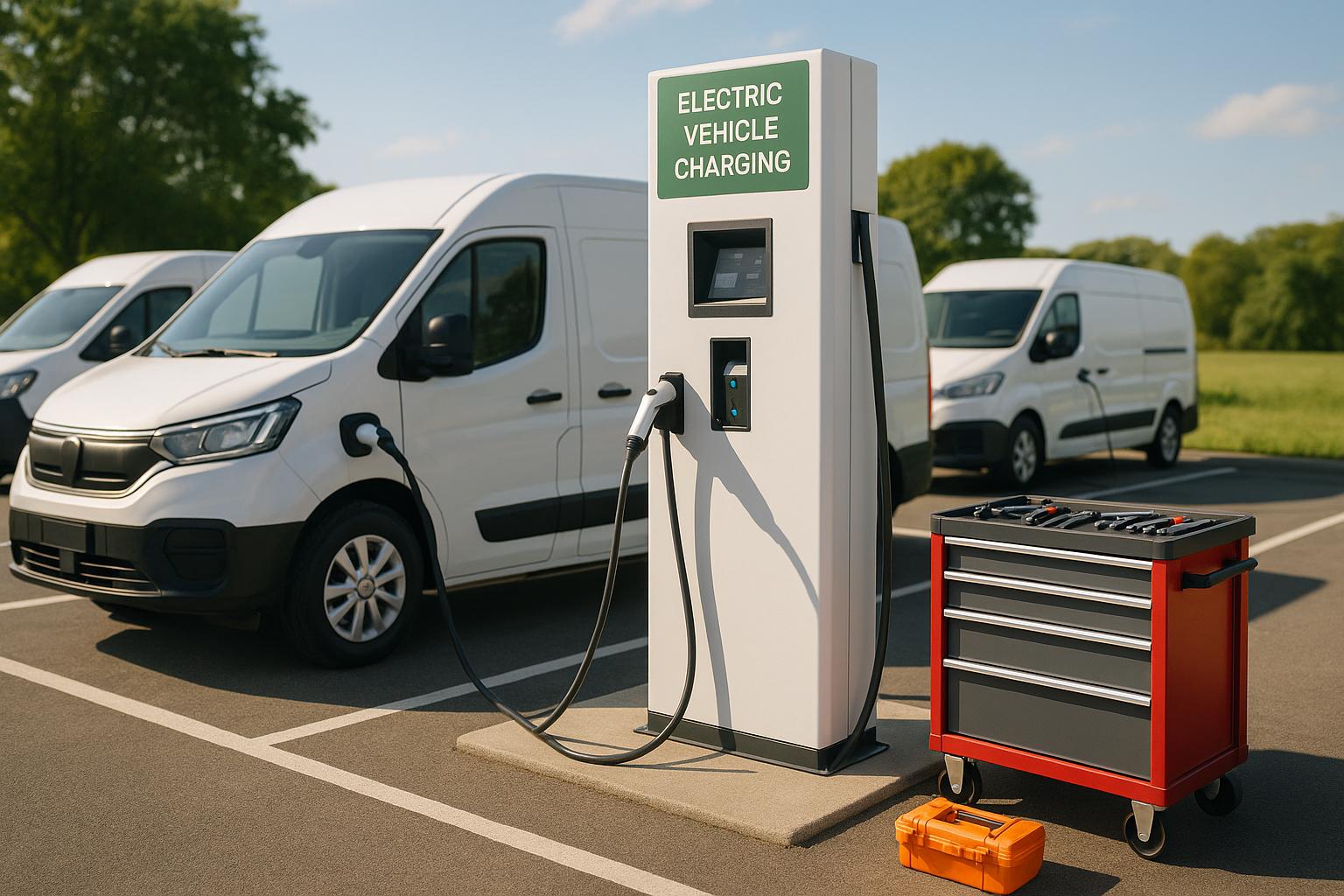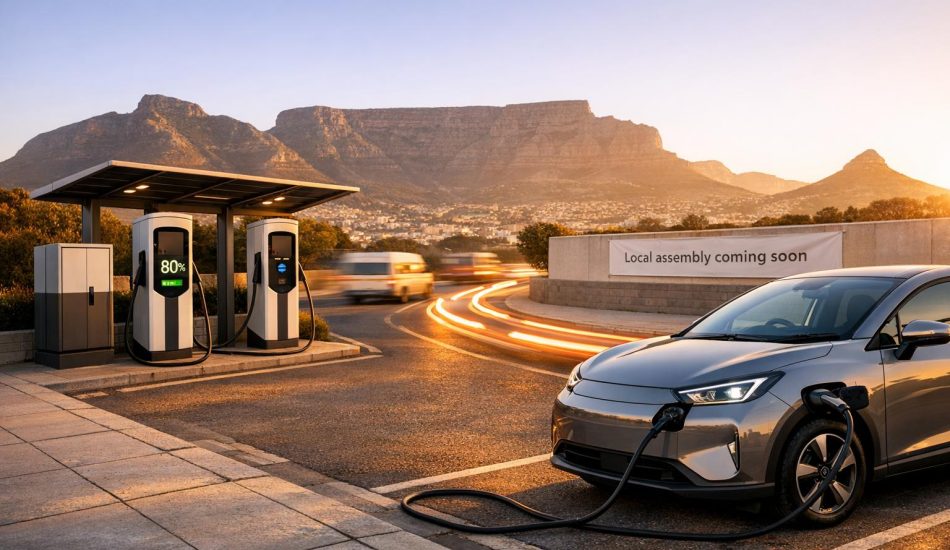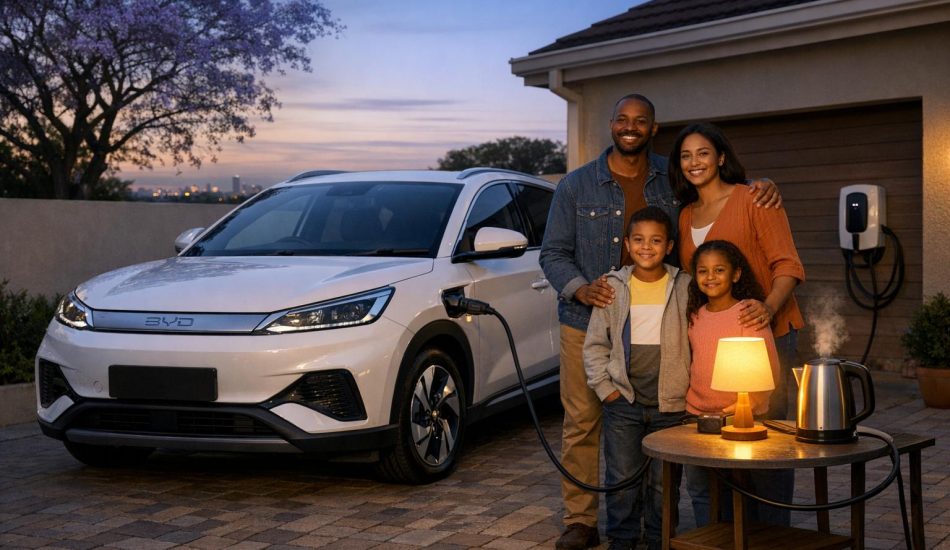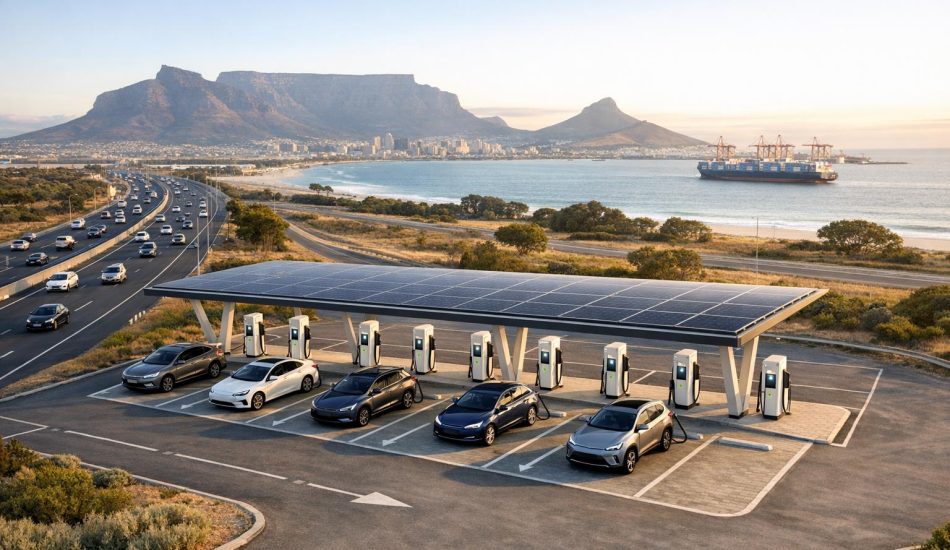
As Africa grapples with the twin challenges of sustainable development and rising energy costs, electric vehicles (EVs) are emerging as a transformative solution. In Kenya, businesses and individuals are discovering how EV fleets can cut costs, enhance efficiency, and contribute to a greener future. The video "How Kenyan Fleets Cut Costs with EV Charging & Maintenance" dives deep into the operational and logistical strategies that make EV adoption feasible and profitable. Below, we dissect the critical insights presented and provide a broader understanding of the EV landscape in Kenya and Africa at large.
The Promise of EVs: Driving Change Across Africa
Electric vehicles represent more than just a shift in technology – they symbolize a paradigm shift in how transportation can align with sustainability goals. In Kenya, where fuel prices remain high and infrastructure faces unique challenges, EVs are gaining traction as a logical solution. The environmental advantages, coupled with lower operational costs, have made EVs appealing to individuals and businesses alike.
But adoption in African settings comes with unique considerations. The video explores these challenges in depth, from maintenance to battery life and local adaptation, while also highlighting the innovative solutions businesses are employing to overcome them.
Key Challenges in Adopting EVs in Africa
The video highlights several hurdles that businesses face when integrating EVs into their fleets. These challenges are not unique to Kenya but resonate across much of Africa.
1. Battery Maintenance and Longevity
Battery health is a critical concern for EV owners. The video notes that older batteries in some vehicles lose a minor percentage of their capacity over time, but proper management can mitigate this. For example, advanced tracking and management systems help monitor battery performance, ensuring optimal usage and longevity.
2. Reliability of Imported EVs
The majority of EVs entering Kenya are second-hand vehicles or models not officially supported by dealerships. This creates a reliance on aftermarket support for repairs and spare parts. The video emphasizes the need for scalable repair solutions, such as salvaging parts from crashed EVs, and adapting local tools to meet these needs.
3. Infrastructure Limitations
While Kenya’s urban areas, like Nairobi, boast decent road networks, rural regions pose challenges for low-ground-clearance EVs. Furthermore, the lack of widespread charging stations necessitates innovative approaches, such as home and office charger installations.
4. Cultural Preferences
Kenyans traditionally prefer vehicles with robust build quality that can withstand years of use. According to the discussion, vehicles imported from China face scrutiny for varying quality tiers. This cultural preference for durability underscores the importance of selecting high-quality EVs for the African market.
Innovative Solutions: How Kenyan Companies Are Tackling These Issues
Despite the challenges, the video demonstrates how Kenyan companies are innovating to make EV adoption smoother and more practical.
1. EV Charging as a Managed Service
One of the standout strategies is the installation of customized EV chargers at homes and workplaces. Companies are managing the charging process to better understand battery degradation over time. By collecting data on charging patterns and battery health, businesses can optimize fleet management and improve vehicle performance.
2. Battery Repurposing and Ecosystem Development
The video discusses how old EV batteries can be repurposed for other uses, such as powering solar panels. This approach not only reduces waste but also creates an ecosystem where batteries have extended lifecycles, from vehicle usage to renewable energy storage.
3. Education and Training Initiatives
To address the skills gap, local businesses are establishing training facilities and collaborative projects. For example, Kenyan companies are partnering with universities and technical institutes to train students in EV assembly, maintenance, and repair. These programs empower the next generation to support the growing EV industry while encouraging innovation.
4. Conversion Projects
For areas where new EV adoption is slow, businesses are converting traditional vehicles into electric-powered ones. The video highlights the conversion of popular Land Cruisers to EVs, which involves outfitting their chassis with battery packs. While costly, this solution aligns with the rugged demands of African terrain.
The Financial and Environmental Impact of EV Fleets
One of the most compelling themes from the video is the financial and environmental savings associated with EV adoption. Businesses running EV fleets report significant reductions in fuel expenses, with some saving over $400 per month on fuel alone. Over time, these savings can offset the initial investment in EVs and charging infrastructure.
Additionally, the environmental benefits are substantial. Tracking systems used by Kenyan companies have calculated the CO2 emissions avoided due to their EV fleets, contributing to cleaner air and a healthier ecosystem.
Building a Sustainable EV Ecosystem in Africa
The video underscores the importance of building an ecosystem that supports EV adoption in a sustainable and scalable manner. This includes creating local solutions for common problems, such as limited spare parts and inadequate charging infrastructure. By fostering innovation and collaboration, Kenya is setting an example for other African countries looking to transition to EVs.
One particularly inspiring approach is the creation of technical challenges and competitions where participants build EVs from scratch using repurposed parts. These initiatives not only foster creativity but also build technical expertise and promote interest in EV technology.
Key Takeaways
- EV Maintenance and Battery Health: Proper tracking and management are essential to extending battery life and optimizing vehicle performance.
- Infrastructure Innovation: Kenyan companies are installing home and office chargers to address the lack of public charging stations.
- Cultural Adaptation: Local businesses are focusing on durable and high-quality EV options to meet the demands of the Kenyan market.
- Repurposing Batteries: Old EV batteries are being used for renewable energy solutions, creating a sustainable ecosystem.
- Skills Development: Training programs and competitions are empowering young Africans to support and innovate within the EV sector.
- Cost Savings: EV fleets can significantly reduce fuel expenses, with some businesses saving thousands annually.
- Local Manufacturing Potential: Conversion projects and repair hubs are paving the way for homegrown solutions in the EV space.
- Environmental Impact: EV adoption is reducing CO2 emissions and contributing to cleaner cities.
- Collaboration Is Key: Partnerships between companies, universities, and global experts are driving the sector forward.
Conclusion
Kenya’s journey into the EV space is a powerful example of how innovation, adaptation, and collaboration can overcome challenges. From battery maintenance to building a sustainable EV ecosystem, the country is showing that electric vehicles are not just a luxury of the West but a viable, transformative solution for Africa.
As EV technology continues to evolve, the lessons from Kenya provide a roadmap for other African countries to follow. By addressing local needs, leveraging existing resources, and investing in education and infrastructure, Africa can lead the way in sustainable transportation solutions. With the right strategies, the future of EVs in Africa is not just promising – it’s inevitable.
Source: "EV World Africa Visits Equator Mobility – Kenya’s EV Gamechanger 🇰🇪⚡" – EV World Africa, YouTube, Aug 7, 2025 – https://www.youtube.com/watch?v=RddjdyYr9ak
Use: Embedded for reference. Brief quotes used for commentary/review.




